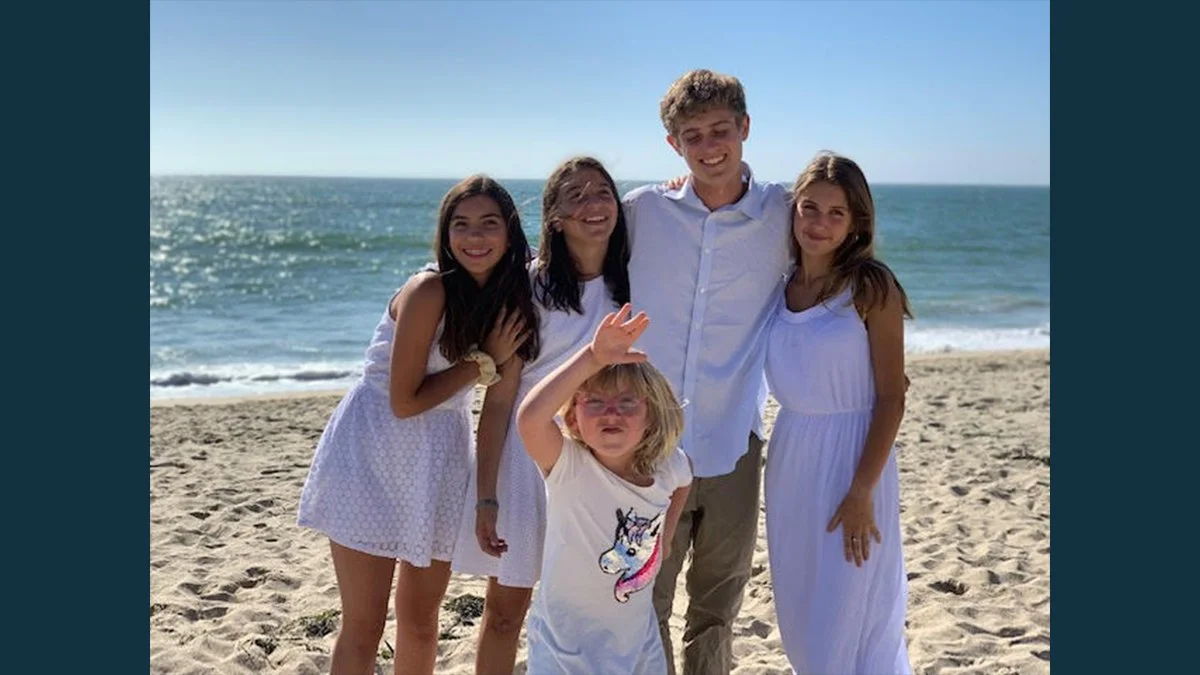I'm Proud of You
By Chaya
"The first time you told me you were proud of me, I didn’t believe you. I asked for a reason. I asked, “why?” You told me you’re proud of me just because. That my very existence is enough."
Chaya: The first time you told me you were proud of me, I didn't believe you. I asked for a reason. I asked, “why?”
You told me you were proud of me just because. That my very existence is enough.
For you've pressed your hope into my body since before I knew what hope could do.
From the grace of your lips into my mind, you hoped for me. For my brother and my sisters, that we would carry ourselves with the love that you carry for us.
And every time the gray of your eyes set into mine, I am reminded of who you see me to be.
Hi, I'm Chaya and I'm here with my ָמא ִא (“Ima,” meaning “mother” in Hebrew).
Ima: And I'm Chaya's Ima.
Chaya: We're going to talk a little bit more about the idea of saying to your children, “I'm proud of you,” and the effects that it’s had on me and my siblings. And, also on what inspired you to start saying that and just, what's your reasoning behind saying that.
Ima: Every night before you went to sleep, I always told you, “I love you and I'm proud of you.” Because I wanted those words in your head.
I felt like if you had the words “I'm proud of you, I love you” in your head, that would help you to feel good about yourself, because I think the feeling that you're proud of yourself or that someone is proud of you is a really good feeling. It's a worthy feeling. It's not like happiness; it's not fleeting. It's like a soul pleasure.
Chaya: It's like more, it’s contentment, I am worthy always.
Ima: Yeah. Yeah. And I always told you, you guys, when you got old enough, you would say, “why are you proud of me?” and I would always have a million things, a list of things; I'm proud of you because, you know, today, you worked hard or today, you helped your friend or, I'm proud of you just because of who you are.
So always these were conversations, and then eventually, you know, Jaye still asks, “why are you proud of me?”
Chaya: Jaye is my eight-year-old sister.
Ima: But eventually you quit asking and you just accept, okay, my mom is proud of me.
Chaya: [Laughs] Yeah, because I do remember that, and… being confused about it. It's this kind of thing that you more often hear when you've—
Ima: When you do something—
Chaya: When you've done something really tangible, and… and it's not a lot of times out there in the world, it's not something I hear a lot, hearing “I'm proud of you,” just, “I'm just proud of you, period.”
I've actually adopted it with Jaye, like, I say that to Jaye sometimes. “I'm proud of you. I love you. You're amazing.”
With Jaye, I also have this sort of, responsibility in terms of being a role model for her because I’m almost ten years older than her, so in a lot of ways I have been kind of like a parental figure for Jaye.
Ima: Yeah. A lot of the voices in a person's head come from their mom and their dad and other people in their life, but mostly their mom and their dad. And, I think, you know, as parents, we make a lot of mistakes and we say a lot of things that we shouldn't say.
Just knowing that I'm going to be the voice in my children's head, I want the voice to be saying, “I'm proud of you.” This is really the reason. I think that when a person feels good about themselves, when they feel pride in themselves, they make good choices. And likewise, when a person feels shame or feels like they're not a good person, they're not worthy and they're not proud of themselves, then they make bad choices.
And, I don't really know why, but I know that when I was in my early twenties, I really thought I was a bad person. And I literally went to bed at night, praying to G-d, please make me a good person. And it's so sad to think that, but I mean, for some reason, I just thought that, that I just wasn't a good person. And it's hard to really know why, but I just know that I wanted all of you guys to know that I love you and that I am proud of you and that nothing you could do could change either of those things.
Chaya: Thank you, Ima, I love you.
Ima: אני אוהבת אותך חמודה ("I love you sweetie" in Hebrew)
Chaya: אותך אוהבת אני (“I love you” in Hebrew)
Chaya: My conversations with my mom made me realize even more how lucky I am to be supported and loved as I have been, alongside my siblings. My Ima taught me the importance of confidence,
self-awareness, and unconditional love. All in these beautiful words: “I'm proud of you.”

